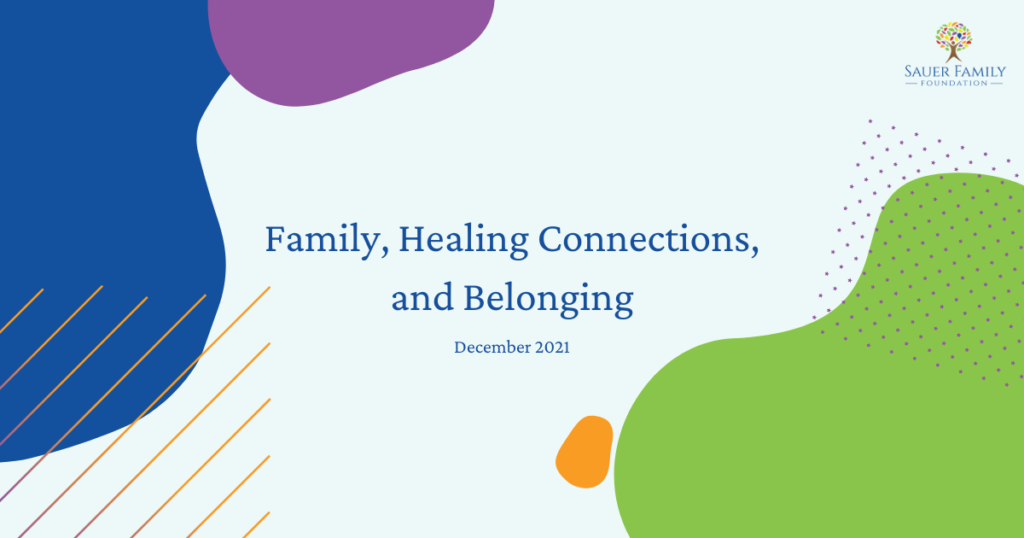Family, Healing Connections, and Belonging

It is the holiday season, which always makes me think of family. And family reminds me more broadly of the importance of connection and belonging. Sometimes belonging is given to us in the family we are born into or the people who officially or unofficially adopt us into their families. Sometimes we create belonging with a group of people that we have gathered around ourselves, and we think of them as our family. True family – whether they are related to us or not – are the people we can share our challenges and successes with and know we will have their support.
These relationships are not only important for feelings of connection and belonging, but we know that every young person needs at least one caring adult to help them through the trials and tribulations of growing into adulthood. The Search Institute has done research on the importance of these intentional relationships for children and youth, called Developmental Relationships. Their Developmental Relationship Framework names five elements that make relationships powerful in young people’s lives:
- Express Care
- Challenge Growth
- Provide Support
- Share Power
- Expand Possibilities
The past two years have emphasized how important these relationships are for children. Isolation and a loss of connection caused by COVID19 has had tangible effects on children’s mental health. This has some teachers tending to the relationships they have with their students in new ways. I recently read an article in a local newspaper that talked about a teacher who now records her student’s favorite activities and gives them cards on their birthdays so she can connect with them on a deeper level. This teacher is making her way toward having Developmental Relationships with the young people in her classroom.
These types of relationships also set the stage for children being able to heal toxic stress/trauma in their lives. Creating a narrative about the experience and sharing it with a supportive adult allows the child to not hold the toxic stress alone. The young person must feel safe with the adult to tell them about a traumatic experience and the adult must be able to listen attentively with an open heart and express care and support for the child. Many adults want to “fix” the situation, but that is not always possible depending on the traumatic experience. For the child, being seen and heard by a caring adult who bears witness to their troubles, helps them move toward healing. This is also true for adults although we often don’t recognize it.
The people with whom we feel safe enough to share traumatic stories are our true family. As the Sauer Family Foundation’s partners embark on a pilot project in 2022 to help foster and homeless youth reconnect with family members they may have lost track of along the way, I think about connection and belonging, and I hope the youth find unpaid, caring adults that they forgot they have in their lives. The adults helping them connect will allow young people to define who family is for them. I am hopeful they find many supportive adults to surround themselves with to help them with whatever they need; people they can call when their car breaks down or for a listening ear when they need an adult to hold their stories with them.
Who bears witness to your stories? To whom do you provide a listening ear in stressful times? As the pandemic shows no signs of relenting, I hope you find connection and belonging this holiday season, enjoying time with the special people in your life.
~ Colleen



